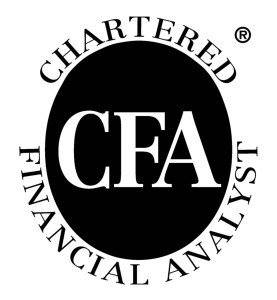 The Association for Investment Management and Research, which is now called the CFA Institute, is an independent financial association that promotes ethics and professional excellence within the global finance industry primarily through its Chartered Financial Analyst (CFA) program. The institute is based in the United States, but it serves financial professionals all over the world. Its rigorous CFA program is comparable to an intensive advanced degree in finance that focuses mainly on honing investment skills. While the CFA Institute also administers their Claritas Investment Certificate and Certificate in Investment Performance Measurement, it is the CFA credential for which they are best known. Here are some of the topics covered within the CFA program, requirements to become a CFA, the approximate CFA program cost and the types of careers available for CFA credential holders.
The Association for Investment Management and Research, which is now called the CFA Institute, is an independent financial association that promotes ethics and professional excellence within the global finance industry primarily through its Chartered Financial Analyst (CFA) program. The institute is based in the United States, but it serves financial professionals all over the world. Its rigorous CFA program is comparable to an intensive advanced degree in finance that focuses mainly on honing investment skills. While the CFA Institute also administers their Claritas Investment Certificate and Certificate in Investment Performance Measurement, it is the CFA credential for which they are best known. Here are some of the topics covered within the CFA program, requirements to become a CFA, the approximate CFA program cost and the types of careers available for CFA credential holders.
CFA Program Topics
The CFA program consists of self study modules that are divided into three sections and culminate with comprehensive exams for each section. The three program sections are investment tools, asset valuation and portfolio management. Some of the finance related knowledge areas that program participants must review for successful exam results are financial reporting and analysis, equity investments, fixed income investments and industry professional standards. Self study is not the only way to prepare for the CFA examinations. Many top ranked Master of Business Administration (MBA) programs also offer a CFA track within their curricula that feature the materials taught on the CFA exams. Since many business professionals were deciding to get the CFA designation over a more costly MBA, savvy universities tailored their MBA programs to allow students the opportunity to earn both credentials simultaneously. Schools like Cornell University and New York Institute of Technology offer program course work on topics like portfolio management, advanced financial accounting and valuation of fixed income securities that help their MBA graduates to gain their CFA certification.
CFA Program Requirements
Prospective CFAs must have a four-year degree, four years of professional experience or a combination of both academic and professional experience that equals four years. These candidates must also be regular members of the CFA Institute and must meet the program’s professional conduct admissions requirement. The professional conduct standards require applicants to self report any potential violations of the CFA Institute’s standards of ethics. Besides passing the three CFA program exams, candidates must acquire four years of investment experience either prior, during or after taking the CFA program.
Overview of the Costs and Benefits of the CFA Program
The price of the CFA program is a relative bargain compared to the price of most accredited MBA or graduate finance degree programs. Program participants pay a one time enrollment charge of $450 USD and a $825 USD exam registration fee for each of the three exams. Charter holders qualify for a variety of positions within the investment community, but the high caliber of professionals associated with the program are particularly attractive to organizations who hire senior investment leaders according to the statistics provided by the CFA Institute. Most charter holders find positions as portfolio managers, research analysts and risk managers. It used to be that business professionals had to have MBAs from top tier schools to even be considered for some of these positions, and those types of MBA programs currently cost almost $100,000. While the CFA program requires a longer time commitment to complete than typical MBA programs, CFAs gain top investment positions for less than a $3,000 educational investment.
Related Resource: Institute of Management Accountants
Conclusion
The CFA designation is one of the most well known certifications within the investment community, and successful completion of the program opens many career doors that would otherwise remain closed. The Chartered Financial Analyst designation represents investment expertise that is founded on a high degree of ethics.
 Follow
Follow